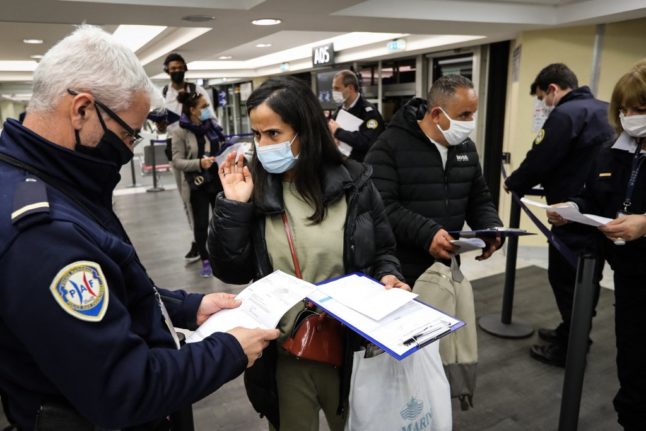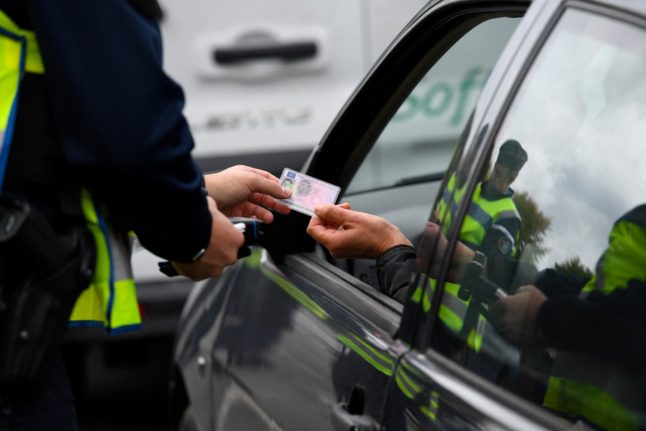France is relatively generous when it comes to granting visas, but that doesn’t mean that the system is easy. We take a look at the type of visa you need, and how to get it.
Do I need a visa at all?
If you have the passport of any EU or Schengen zone country then congratulations, you just won the migration lottery. You don’t need a visa to visit France. If you intend to stay here long term you won’t need a visa and don’t need to register for residency, but you will need to do things like register in the healthcare system and file an annual tax declaration.
If you are the citizen of a non-EU country then you may benefit from the 90-day rule. Countries including the UK, USA, Canada and Australia all benefit from this rule, which allows you to visit France for 90 days out of every 180 without needing a visa. Citizens of certain countries require a visa even for a short trip – find the full list here.
If you are Ukrainian and fleeing the war you can enter without a visa under the 90 day rule and then stay for at least a year – full details here.
If you are British then unfortunately your days of extended visa-free trips ended with Brexit, and you now come under the same immigration regime as other non-EU citizens like Americans, Canadians and Australians.
What do I do if I need a visa?
The first thing you need to do is determine what type of visa you need. France provides multiple different visa options and they all have slightly different requirements for documents.
The basic process is the same though – you apply online, provide all the necessary supporting documents, pay the fee and then attend an in-person appointment in your home country. The key thing is that visas must be applied for in your home country before you travel to France. You can find full details on the process HERE.
Which type of visa you want depends on two things – how long you intend to stay in France and what you intend to do while here.
Below are some of the most common visa scenarios:
Second-home owners
If you own property in France you can visit for up to 90 days in every 180 without a visa. This means that in total you can spend six months of the year in the French property, but this cannot be six consecutive months – full details on how the 90-day rule works here.
If you want to spend longer than 90 days at a time in France, then you will need a visa. Most second-home owners who want to pay long visits are retired, so opt for a visitor visa.
There are two types of visitor visa – a 6-month temporary visitor visa and a 1-year long-stay visitor visa.
Here’s what the French government says about second-home owners: “If you are spending between three and six months a year in France in total, you are not considered as a resident in France. You will have to apply for a temporary visitor visa – visa de long séjour temporaire visiteur.
“If you spend more than six months a year in France, you are then considered as a French resident and must apply for a long stay visitor visa (visa de long séjour valant titre de séjour visiteur).”
In both cases, the visitor visa requires an undertaking not to work in France, so is not suitable for those who might want to work remotely from their French property.
READ ALSO Working remotely from France – what are the rules for foreigners?
Full details on visitor visas and how to get one HERE.
Retirees
Although its name suggests that it’s just for people on short trips, the visitor visa is also the one you need if you intend to retire to France.
It’s not just for tourists and second-home owners, it’s for anyone who does not intend to work, study or look for work while they are here.
Because you are declaring that you won’t be working while in France, the visitor visa has the highest level of financial requirements – basically you need to prove that you can take care of yourself financially and will not become a burden on the French state.
READ ALSO How much money do I need for a French visa?
Full details on retiring to France HERE.
Other visitors
The visitor visa is not just for those who have a place in France. In fact, owning property does not give you any advantage per se in the visa system.
If you’re doing any type of visit to France that does not involve paid work – a long holiday, a non-paid artistic project, travelling and learning the language – then it’s also a visitor visa.
Students
The French government is keen to attract foreign students to its universities, with the result that the student visa is probably one of the most straightforward visas to get, although you do need to have an offer in place from a French higher education establishment before you begin the application process.
Once you have finished your studies, the French government is keen to keep you, and there is a process to convert your student visa into a job-seeking visa while you look for a job in France. If you have completed higher education in France, you also only need to be resident for two years before you can apply for French citizenship.
Full details on student visas HERE.
Working in France
If you intend to work in France, then there are various different options to cover this.
The most straightforward scenario is if you already have a contract or a job offer with a company in France, or with an overseas company that is transferring you to France. In this case you need a working visa with your employer as the sponsor.
If you are moving to France to work with a company, check that they are happy to sponsor your visa – not all companies are willing to do this because of the extra administrative burden, although companies that don’t sponsor visas would most likely check your residency status before making you a formal job offer.
If you intend to work as a freelancer or set up your own business in France, you probably want the self-employed/entrepreneur visa. This one has financial requirements, similar to the visitor visa, in which you must be able to demonstrate that you can take care of yourself financially while you search for work and therefore will not become a burden on the French state.
‘Not too complicated but quite expensive’ – Getting a French visa as a freelancer
Depending on the type of work you do and your previous experience you may qualify for the Talent Visa programme – this is the most generous type of French visa, offering three years of residency with the opportunity to bring along family members. Originally aimed at rich business owners and tech specialists, it has been expanded in recent years and now covers quite a wide range of different professions – full details HERE.
If you want to do short-term work in France without moving here, you can get a working visa, but this would normally be tied to a specific project that you will be working on while you are here. You will also need to check whether you need a work permit.
Spouse visa
If you are married to a French or EU citizen, then you may be able to benefit from a spouse visa. Contrary to common belief, being married to a French person does not exempt you from the requirement to have a visa, it just offers you an extra visa option.
There’s no rule that says you have to take up a spouse visa if you are married to a French person – if you already have a work or study programme lined up you can get a work or student visa in your own right, it’s basically up to you.
EXPLAINED How to get a French spouse visa
Others
The above is intended only as a guide and is based on the most common scenarios of people coming to France, if you have a complex or unusual case it would be best to consult a specialist immigration lawyer.
The French visa website also hosts the ‘visa wizard’ which allows you to enter all the your details and then guides you to the type of visa that you need – find it here.
What next
Imagining that getting a visa is the end of your French paperwork requirements? Ha, dream on! The bureaucracy continues – full details HERE.



 Please whitelist us to continue reading.
Please whitelist us to continue reading.
I have read and understood your terms of use.
My name is Rosemary Border Rabson. I am a UK citizen and paid up member of The Local. My husband John has both UK and French citizenship. We have lived in France since 2005. I shall be 79 in June 2022 and John will be 80 in September 2022. We are retired and have ample means thanks to our pensions and my royalies from published works. We own our home and a small property in England.
We have one son, Hugo, aged 47. He was born in the UK and was awarded US citizenship after he was invalided out of the US Army after suffering PTSD, etc as a result of active service in Iraq and Afghanistan. He has a 100% disability person from the Veterans’ Association and would not be a burden on the French government. Additionally he owns outright a house near ours.
He arrived in France in June 2021 largely thanks to a letter from our family doctor asserting that John and I needed Hugo near us. Hugo “burnt his boats” in the US and arrived with two suitcases and the desire to live permanently in France. Because of his psychiatric issues he is unable to cope with the stress of obtaining a visa for himself. I am series editor and co-author of the Pocket Lawyer series (Cavendish), but I find French admin so baffling that I have entrusted John with the task. However, it has just occurred to me that as a Local I may be entitled to some knowledgeable advice!
Nobody has yet asked about Hugo’s permission to remain in France. Do we let sleeping dogs lie?